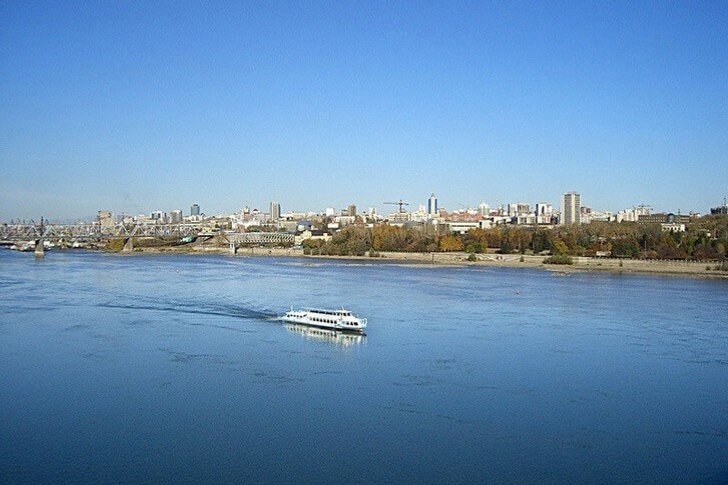Novosibirsk is an important cultural and industrial center of the region, the third largest city in Russia. There are not so many historical sights here, the city was founded in 1893. But it is quite an interesting place in terms of industrial tourism. Visitors are impressed by the majestic bridges across the Ob, powerful industrial enterprises, a giant hydroelectric power station and the artificial Ob Sea.
Those wishing to walk around the city should definitely visit Lenin Square with its non-standard monuments, the Museum of Railway Engineering and at least one of the local theaters, and those interested in science have a direct road to the famous Academgorodok - the heart of advanced thought and progressive technologies.
What to see and where to go in Novosibirsk?
The most interesting and beautiful places for walking. Photos and a short description.
- Opera and Ballet Theatre
- Novosibirsk Zoo
- Novosibirsk Academgorodok
- Lenin Square
- Monument of Glory
- Theater Red Torch
- Globus theatre
- Cinema Pobeda
- Cathedral in the name of Alexander Nevsky
- Chapel of Saint Nicholas
- Ascension Cathedral
- Museum of Local Lore
- Novosibirsk Art Museum
- Museum N. Roerich
- Sun Museum
- Museum of World Funeral Culture
- Museum of Railway Engineering
- Toy railway
- Big Novosibirsk Planetarium
- Monument to the laboratory mouse
- Sculpture Purchase Scene
- Traffic light monument
- Station Novosibirsk-Main
- 100 apartment building
- Novosibirsk metro bridge
- Bugrinsky bridge
- Zaeltsovsky park
- Central park
- Central Siberian Botanical Garden
- The Ob River and the Ob Sea
Opera and Ballet Theatre
The theater building is located on the main square of the city. It was erected in 1931-41 and today, after reconstruction in 2005, it is considered the largest and most modernly equipped stage in Russia. The building consists of several parts: an impressive concert and auditorium, a lobby, a stage block, rehearsal rooms, a scenery warehouse and an administrative block.
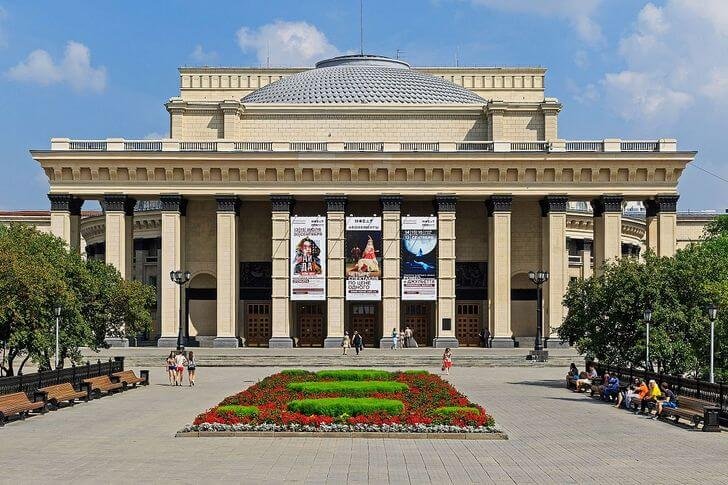
Novosibirsk Zoo
One of the largest zoos in the country. It contains more than 11 thousand individuals (a total of 756 species), about half of which are listed in the Red Book. The menagerie takes part in dozens of international programs for the protection and conservation of the planet's fauna, and is also a member of authoritative unions like WAZA and EARAZA. The zoo was founded in 1947. It receives up to 1.5 million visitors annually.
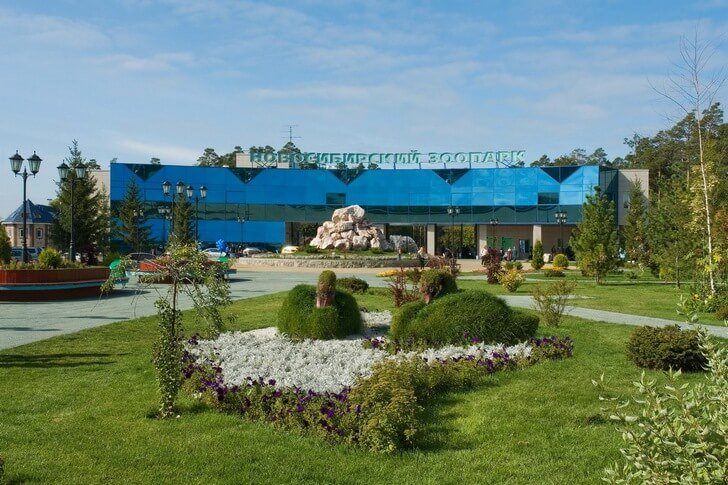
Novosibirsk Academgorodok
Akademgorodok is one of the districts of Novosibirsk, located about 20 km from the main part of the city. Since 1959, prominent scientists have lived here and all kinds of scientific institutes have been built. Also here is the Novosibirsk State University. In the post-Soviet period, despite the general decline, divisions of large international companies were opened on the territory of Akademgorodok, which attracted a stream of private investment.
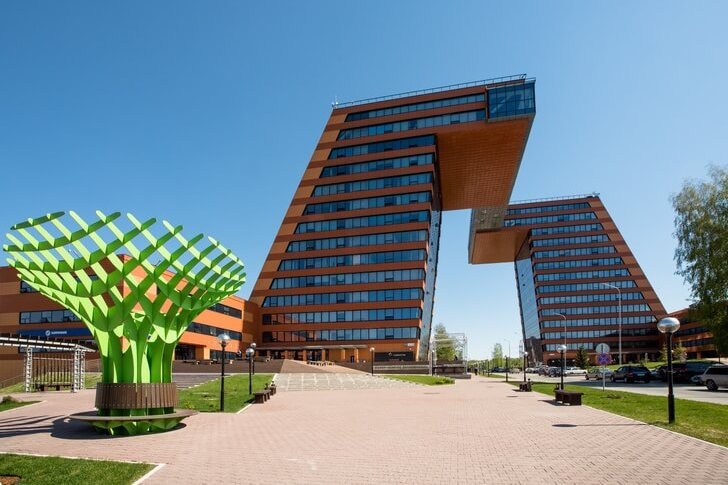
Lenin Square
The central square of the city, where the main attractions are located: the Museum of Local Lore, the Musical Theatre, the square, the chapel of St. Nicholas the Wonderworker, as well as numerous monuments. These monuments should be given special attention: there is an Iron Throne, a Music Box in memory of V. A. Lensky, monuments in honor of the first cinema and a tram, and the Veterans Hospital stele.
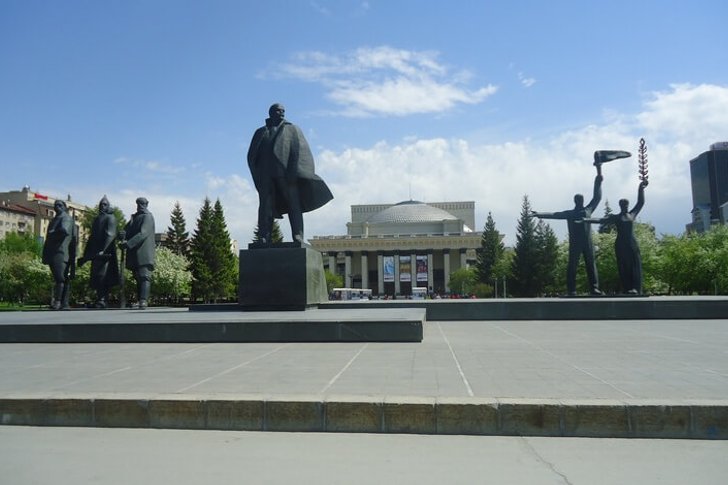
Monument of Glory
The monument was erected in 1967 in honor of the inhabitants of Siberia - participants in the Great Patriotic War. It is a memorial complex consisting of the Eternal Flame, the figure of a woman-mother and several ten-meter pylons, on which scenes of the main stages of the Second World War are carved in chronological order. Immediately behind the complex begins the Walk of Fame, consisting of 100 firs.
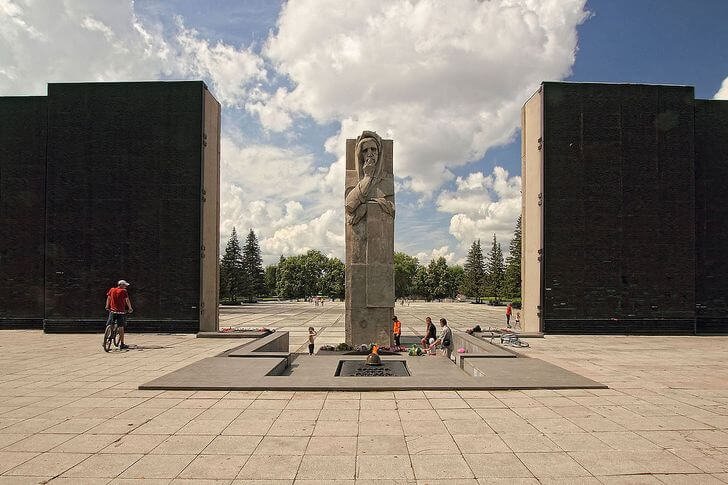
Theater "Red Torch"
Since 1932, the theater stage has been located in a historic building of the early 20th century, built in the style of Russian classicism with modern elements. Before the Revolution, it belonged to the local Commercial Club. The structure has gone through several renovations (the last one was carried out in 2007), thanks to which it is in excellent condition. "Red Torch" is considered one of the leading theaters in Novosibirsk.
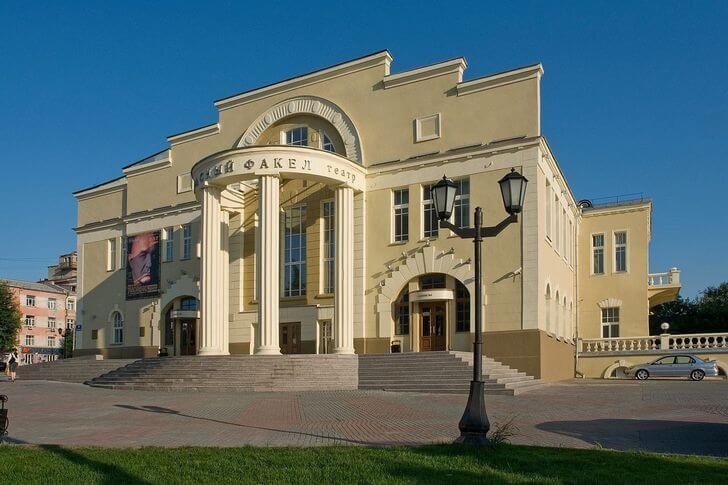
Globus theatre"
A youth stage where works of various genres are staged. It was founded in 1930 and since then has been famous for the diversity of its repertoire and the presence of various directing schools, which attracts a fairly wide audience to performances. "Globe" is located in a building built in 1984 in shape resembling a sailing ship. Until 1993, it was called the Theater of the Young Spectator.
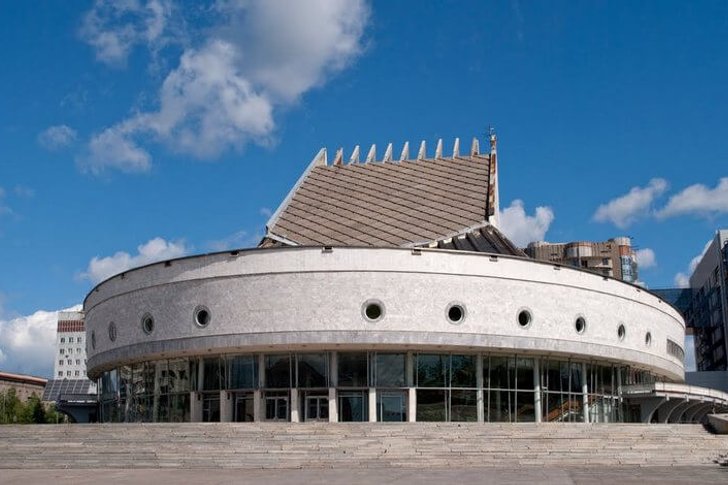
Cinema Pobeda
The cinema occupies a neoclassical monumental building built in the 1920s for the Palace of Labor complex, designed by S. A. Shestov. Since then, the building has been reconstructed four times, but the historical appearance has not been affected: the main facade is still adorned with an impressive portico with columns, and the original wooden decoration elements have been carefully preserved in the interior.
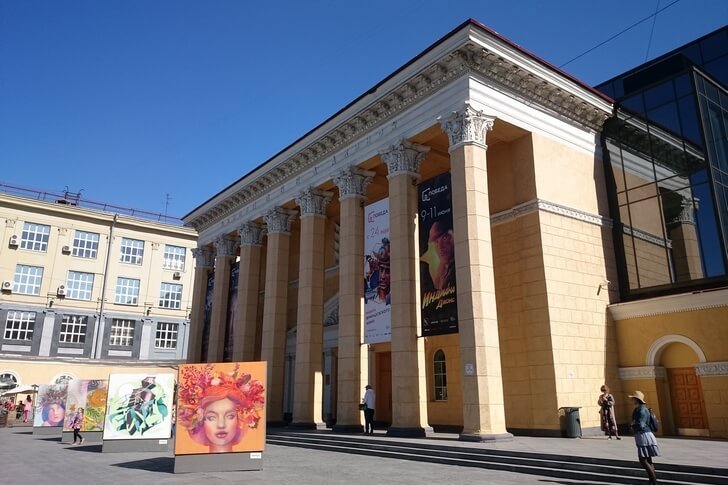
Cathedral in the name of Alexander Nevsky
An Orthodox church in neo-Byzantine style, built at the turn of the 19th and 20th centuries. Despite such a late construction, it is one of the first stone structures in the city. The cathedral is made of red brick, its walls and facade are framed by slender rows of arched windows, the roof is crowned with symmetrical hemispherical domes. In the 1930s, after the temple was closed, attempts were made to blow it up, but the building survived.
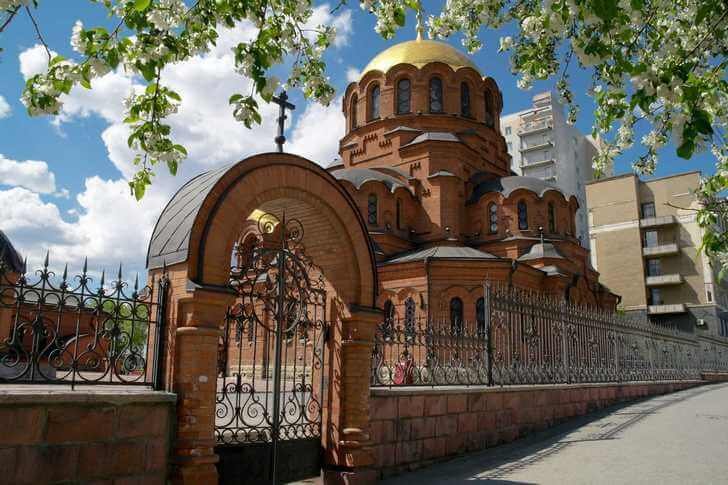
Chapel of Saint Nicholas
The small church is one of the symbols of Novosibirsk. It was erected in 1914 in honor of the start of construction of a railway bridge across the Ob River, as well as in honor of the 300th anniversary of the Romanov dynasty. The building was demolished in 1930. In the 1990s, its restoration began according to the project of P. A. Chernobrovtsev. In 2002, Patriarch Alexy II presented the city with an icon of St. Nicholas, which was placed in the chapel.
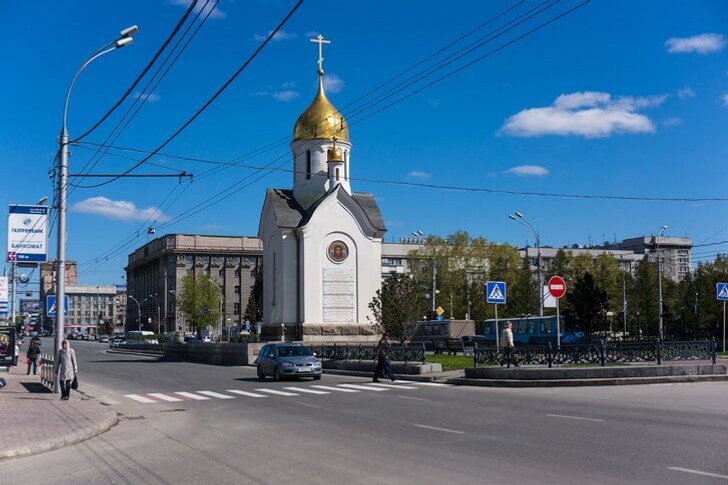
Ascension Cathedral
Novosibirsk Cathedral, founded in 1913. The first building of the cathedral was wooden. Only in the 1970s and 80s it was reconstructed, gradually replacing all the structures with stone ones. The construction was completely ready for 1988 - the 1000th anniversary of the Baptism of Rus'. The cathedral houses several valuable icons and relics of prominent Orthodox saints: Nicholas the Wonderworker, Seraphim of Sarov, Ambrose of Optina.
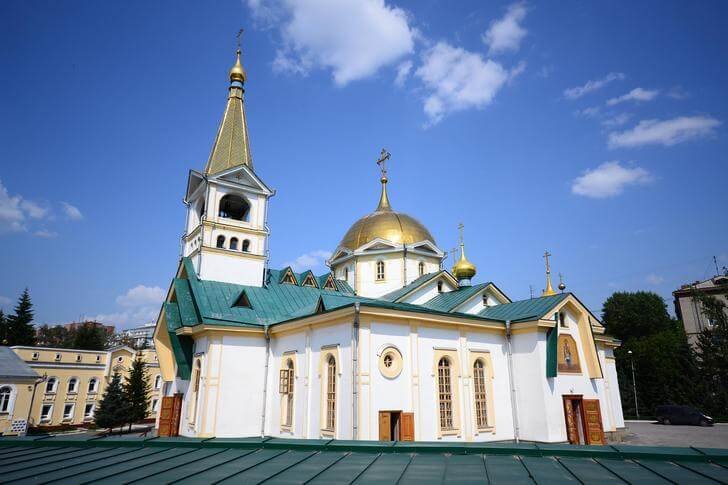
Museum of Local Lore
The museum collection is housed in several branches. Since 1986, the main branch has been located in the picturesque building of the City Trade Building, erected in 1910 in the manner of a rationalist modernist style. The exposition is a collection of objects that tell about the culture and life of the indigenous peoples of Siberia. It consists of more than 230 thousand copies.
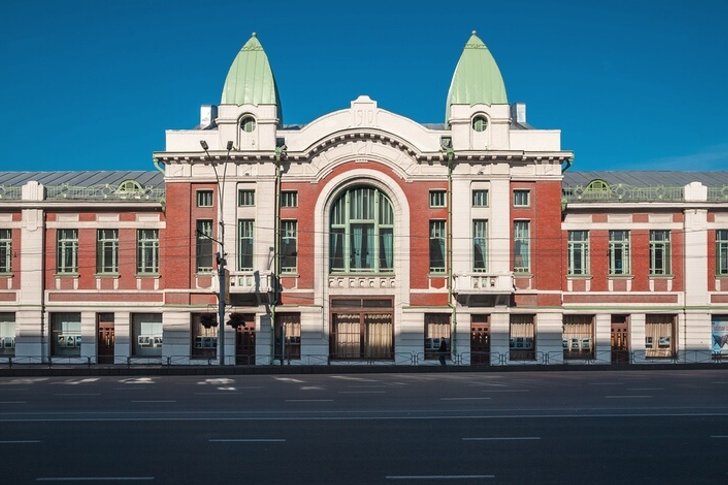
Novosibirsk Art Museum
The Novosibirsk Art Gallery consists of a collection of icons, Russian art of the 18th-19th centuries, foreign paintings and paintings by contemporary artists of the 20th century. A separate section is devoted to the works of N. K. Roerich, which the master created in the last decade of his life and bequeathed to the museum after his death. The gallery conducts active research activities. Conferences, round tables and seminars are often held here.
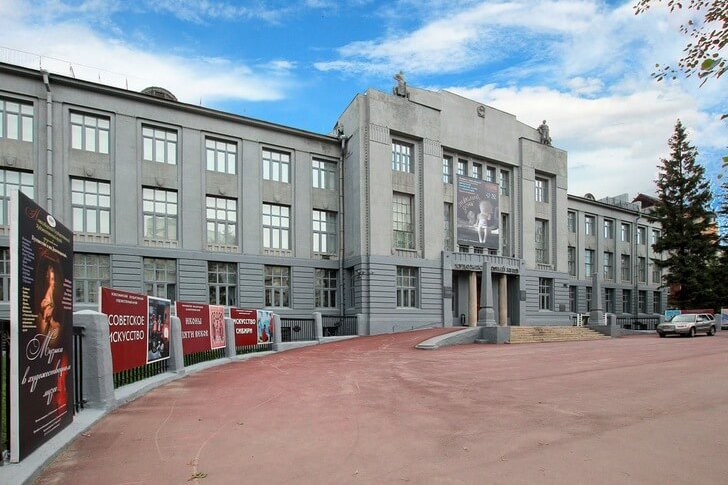
Museum N. Roerich
The museum was founded in 2007 with funds from the Siberian Roerich Society and donations from individuals. Its collection is dedicated to the work of the famous artist, as well as the life of his family - his wife Elena and sons Yuri and Svyatoslav. The exposition consists of reproductions, watercolors, photographs, maps with expedition routes and other items, one way or another connected with the Roerichs.
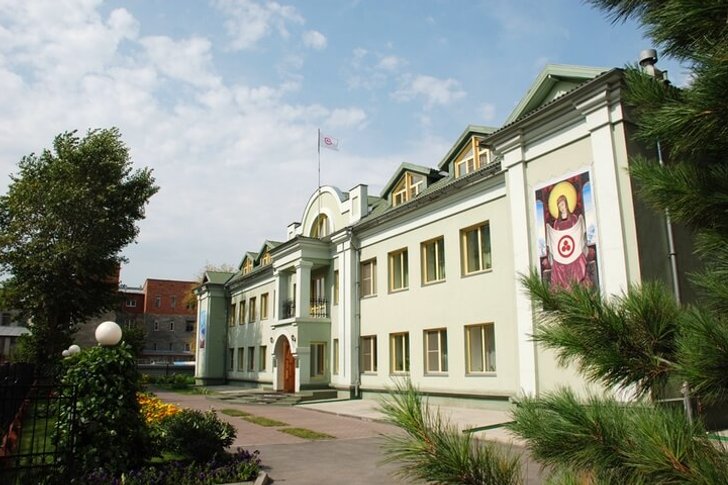
Sun Museum
A private collection dedicated to images of the solar system and solar gods worshiped by representatives of different civilizations: Indians, inhabitants of the Himalayas, Slavs and other peoples. For Russia, this collection is the only one of its kind. The exposition consists of approximately 2000 items. About 500 of them are wooden works of the founder of the museum V. I. Lipenkov.
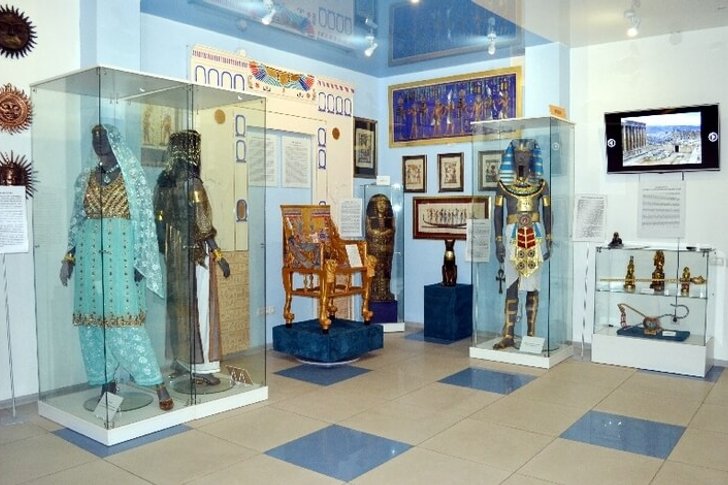
Museum of World Funeral Culture
Another unique collection, which has no analogues throughout Russia. It is dedicated to funeral traditions. The museum was founded in 2012 by S. B. Yakushin, an entrepreneur, academician and vice-president of the Union of Funeral Organizations and Crematoria. The exposition consists of mourning costumes, hearses, engravings, sculptures and drawings of the funeral theme, as well as photographs, documents and obituaries.
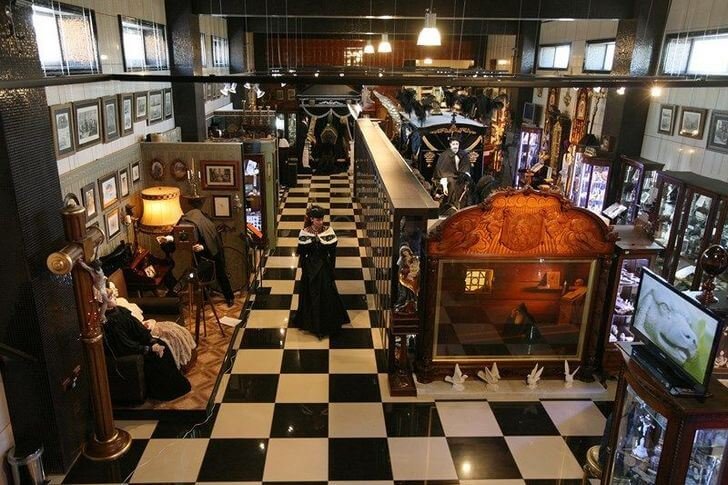
Museum of Railway Engineering
An open-air museum exhibiting various models of electric locomotives, steam locomotives, diesel locomotives, electric trains, rolling stock and wagons, which were mainly used on the railways of Western Siberia. The total length of the exposition is about 3 km, at the moment it consists of several dozen exhibits. The museum was founded in 2000 near the Sower railway station.
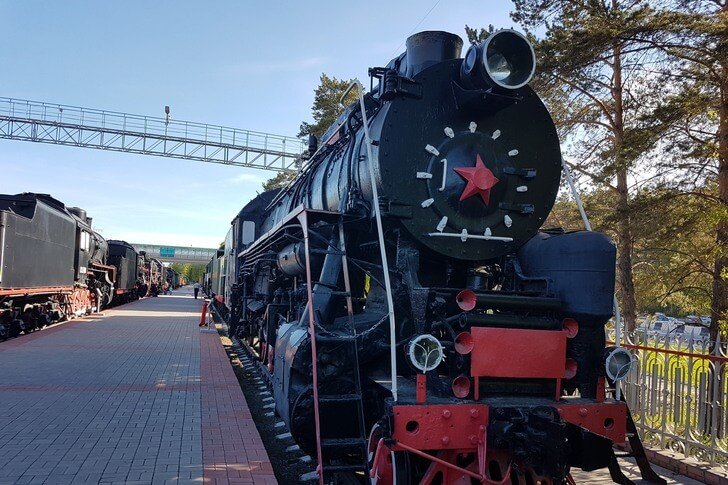
Toy railway
Narrow gauge railway with a length of 5.3 km, passing through 2 artificial overpasses and 2 bridges. There are 5 stopping points along the route of the train. The tracks first appeared in 2005, when their length was no more than 600 meters. Several real trains run by rail: "Dream", "Sibiryak", "Youth", "Fairy Tale". The period of movement is limited - from June 1 to September 30.
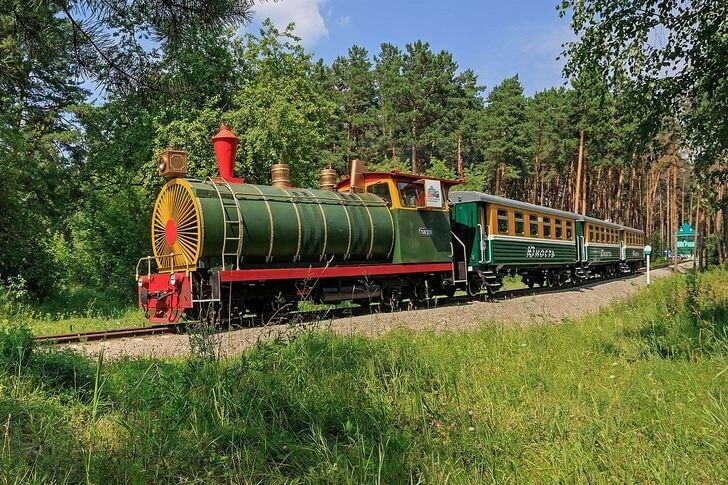
Big Novosibirsk Planetarium
A modern complex equipped with the latest technology. On its territory there are 4 powerful telescopes. The space theater of the planetarium is designed for 114 spectators, there is also a full-fledged astrophysical center, a film studio, an observatory, the Foucault Tower, where you can track the daily rotation of the Earth, a park area and a cafe. The planetarium was opened in 2012 on the Day of Russian Science on February 8th.
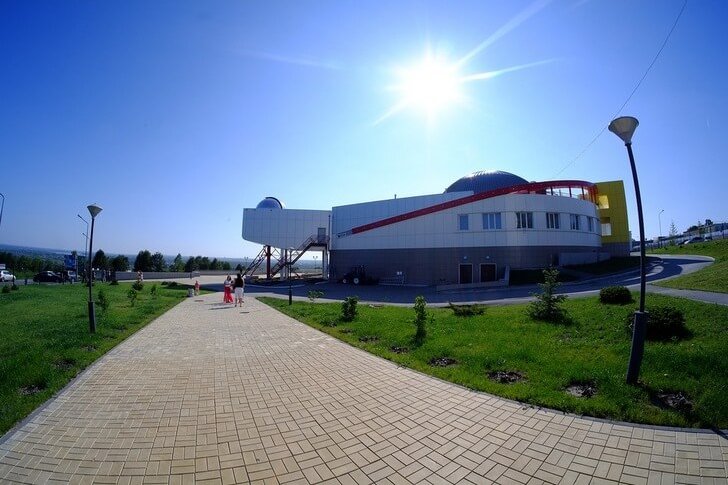
Monument to the laboratory mouse
The monument is located on the territory of Akademgorodok. Its opening was timed to coincide with the 120th anniversary of the founding of Novosibirsk. The statue is made in the form of a mouse in glasses, located on a granite pedestal. The animal holds knitting needles in its hands, from under which a lace emerges in the form of a DNA chain. The monument was erected in gratitude to the rodents for all their torment experienced within the walls of scientific laboratories.
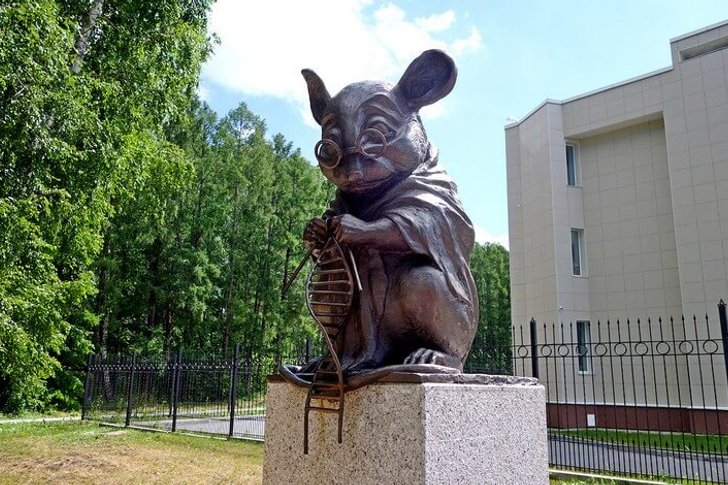
Sculpture "Purchase Scene"
The sculptural group decorates the space near the central city market. It was installed in 2011 in honor of the 118th anniversary of Novosibirsk. The author of the project was E. Dobrovolsky. The composition consists of a market trader and a buyer who was distracted by the goods, which the dog immediately took advantage of and pulled out a bunch of sausages from his bag. The monument, as it were, reminds people that they need to remain vigilant in the bazaar.
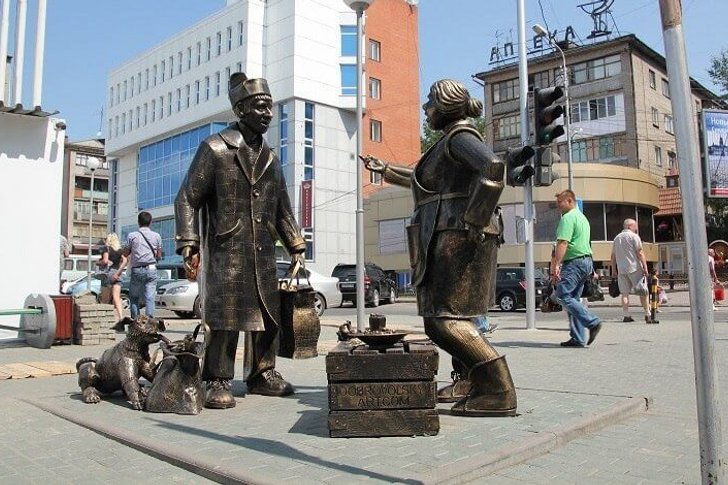
Traffic light monument
The monument is located in the central part of the city. It is made in the form of figures of a traffic light and a well-fed sentry who greets the device. The monument appeared in 2006 in honor of the celebration of the 70th anniversary of the creation of the traffic police. The idea of creating such an unusual composition came to Colonel S. Shtelmakh and the director of the local branch of Avtoradio V. Bulankin.
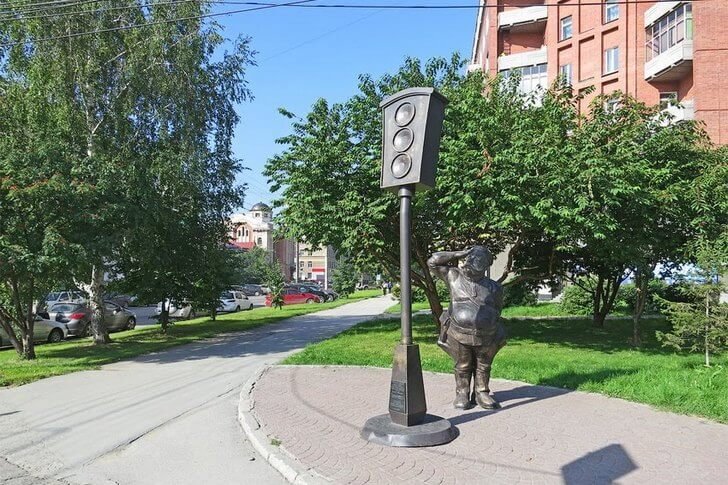
Station Novosibirsk-Main
The main railway station of the city, first opened in 1893 as part of the construction of the Trans-Siberian Railway. The first station buildings were built of wood. In 1939, a stone building was built. In 1999, a major reconstruction of the station was carried out using marble and granite. Passenger and cargo trains depart from here in different directions.

100 apartment building
A monumental residential building of the 1930s, built according to the project of V. S. Maslennikov and A. D. Kryachkov in the post-constructivism style popular at that time. The building is made in the shape of the letter "P", it consists of 8 floors, on which there are 100 residential apartments of a large area (some even had quarters for servants). The house was built for employees of the Executive Committee of the West Siberian Territory.
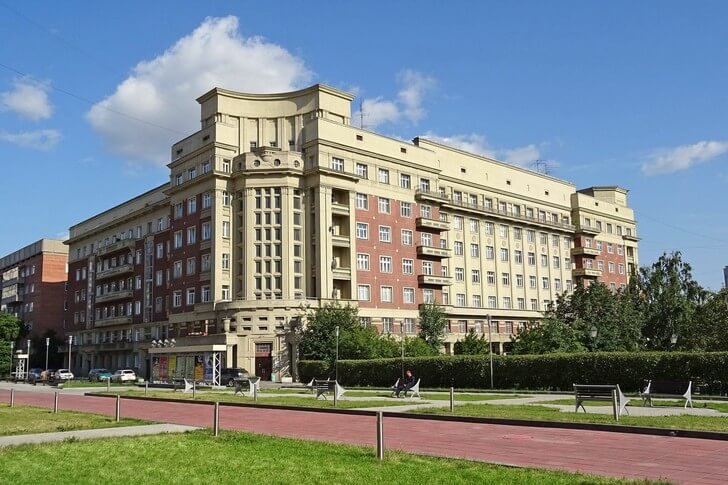
Novosibirsk metro bridge
Covered pontoon over the Ob River with a total length of more than 2 thousand meters (about 900 meters pass over the water), which connects the Rechnoy Vokzal and Studencheskaya metro stations. It consists of 7 spans. The structure was erected in the 1980s. It is considered the longest bridge of this type in the world and a unique technical structure. The construction of the bridge solved many transport problems of the city in its time.
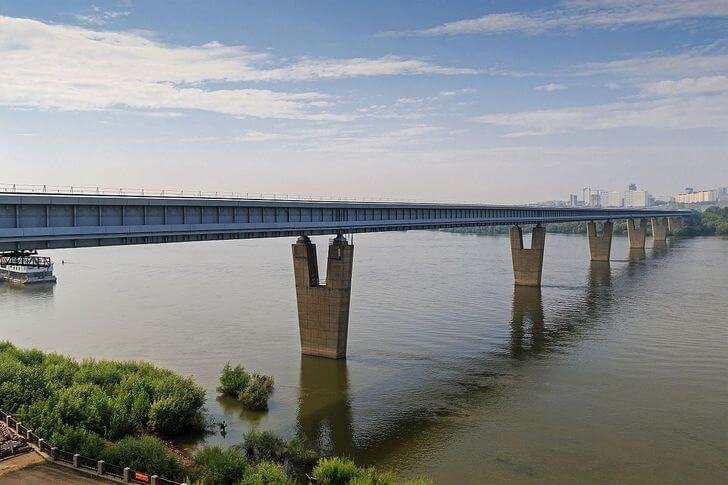
Bugrinsky bridge
Bridge across the Ob River connecting Oktyabrsky and Kirovsky districts. It was inaugurated in 2014. The erection of the structure was dictated by urgent need, since the existing bridges could not cope with the significantly increased traffic load. The construction is made taking into account modern technologies and design. It immediately became one of the attractions of Novosibirsk.
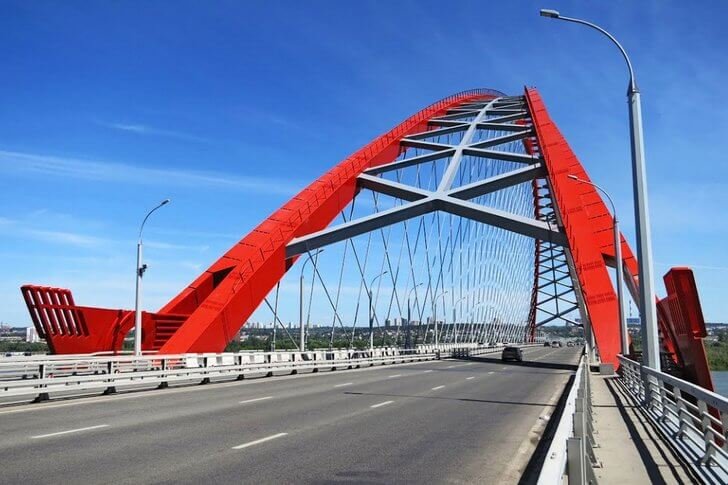
Zaeltsovsky park
One of the oldest and most picturesque parks in the city, which residents often call the "green pearl". Until the 1930s, a natural forest was located here, where the city administration decided to arrange a recreational zone. Gradually, paths were equipped, attractions were built, and the coastal zone was equipped. Today, the park has a paid beach, sports grounds, a swimming pool, and a tennis court.
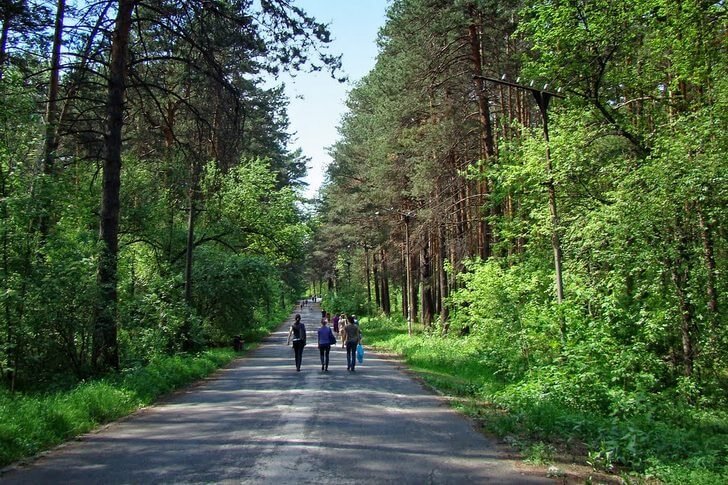
central park
The park appeared in the city in 1925 on the site of an old cemetery. At that time, the name "Cemetery" was firmly attached to it. In 1952, a planetarium was opened here, in 1959 - the Novosibirsk Theater of Musical Comedy. Today, the park houses children's attractions, sports sections and summer cafes. The skating rink is open in winter. The total area of the recreational zone is more than 10 hectares.
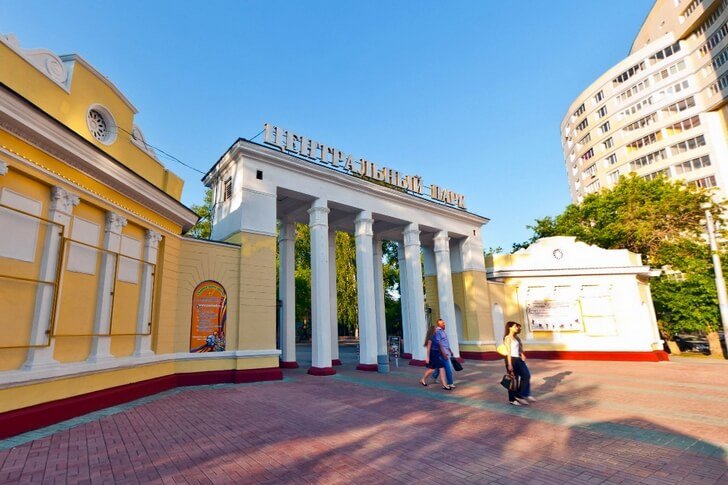
Central Siberian Botanical Garden
The garden is located within the territory of Akademgorodok and, first of all, is a research institution. It occupies a vast area of more than 1,000 hectares, where greenhouses, greenhouses, laboratories, warehouses, a technical base and other premises are located. Several thousand species of plants grow here, including rare and endangered ones. The team publishes the "Red Book" of Siberia, as well as "Determinants of plants".
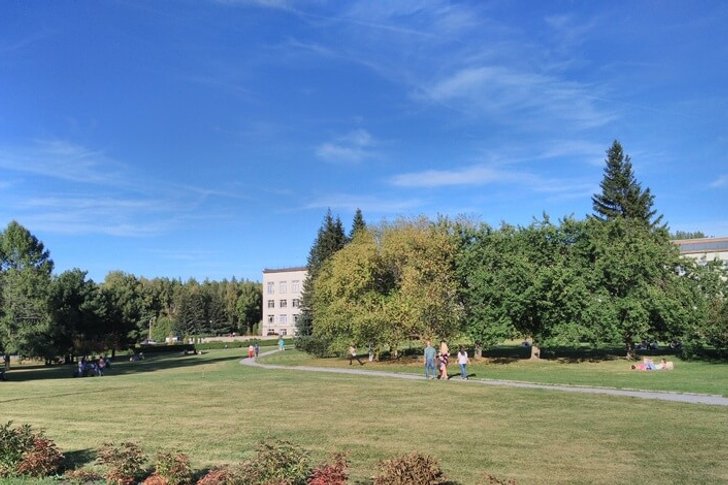
The Ob River and the Ob Sea
The Ob is one of the largest water arteries in the world, its length is more than 3600 km. The river passes through many cities of Siberia. Within Novosibirsk, it spills into a large reservoir, unofficially called the Ob Sea. The main purpose of a water reservoir is to provide electricity. Also, the shores of the "sea" are a popular recreation area for the townspeople.
